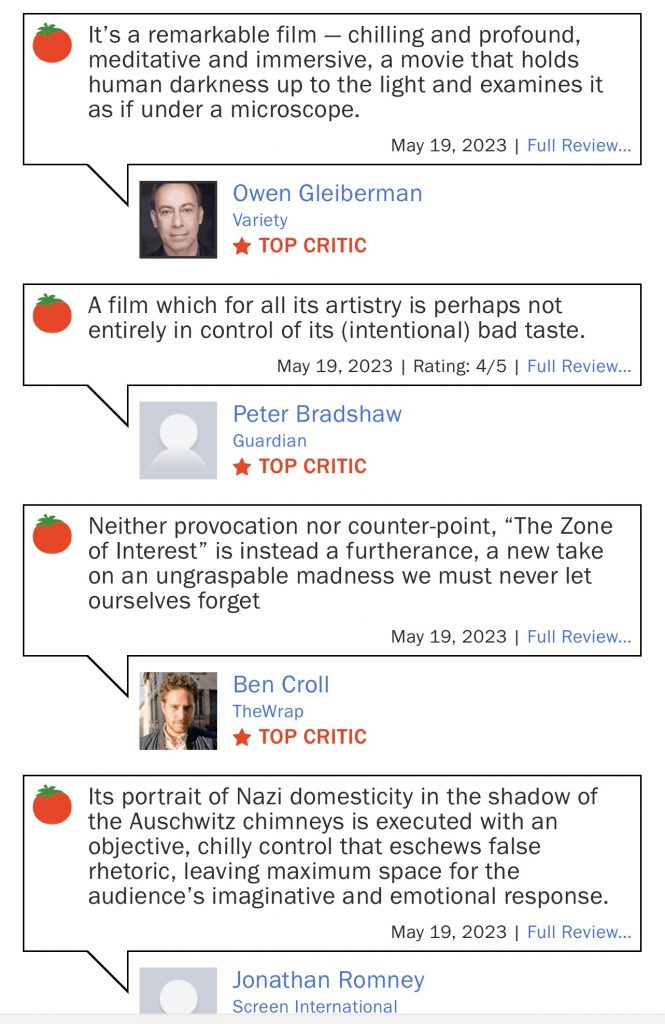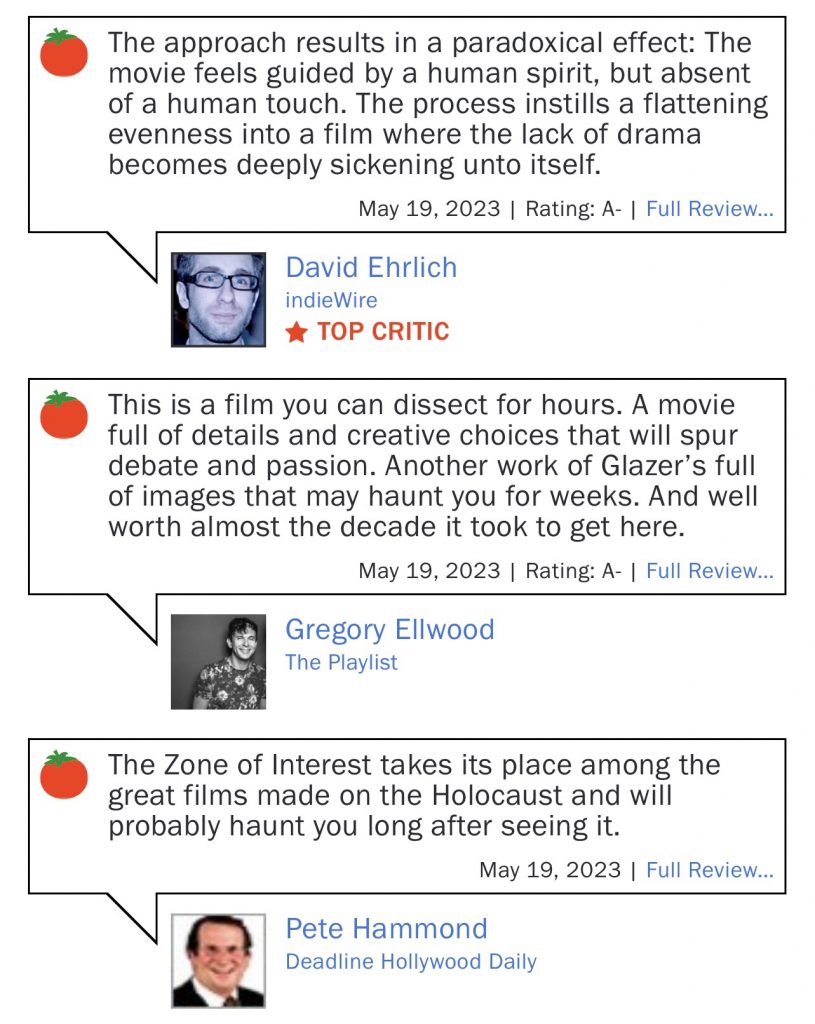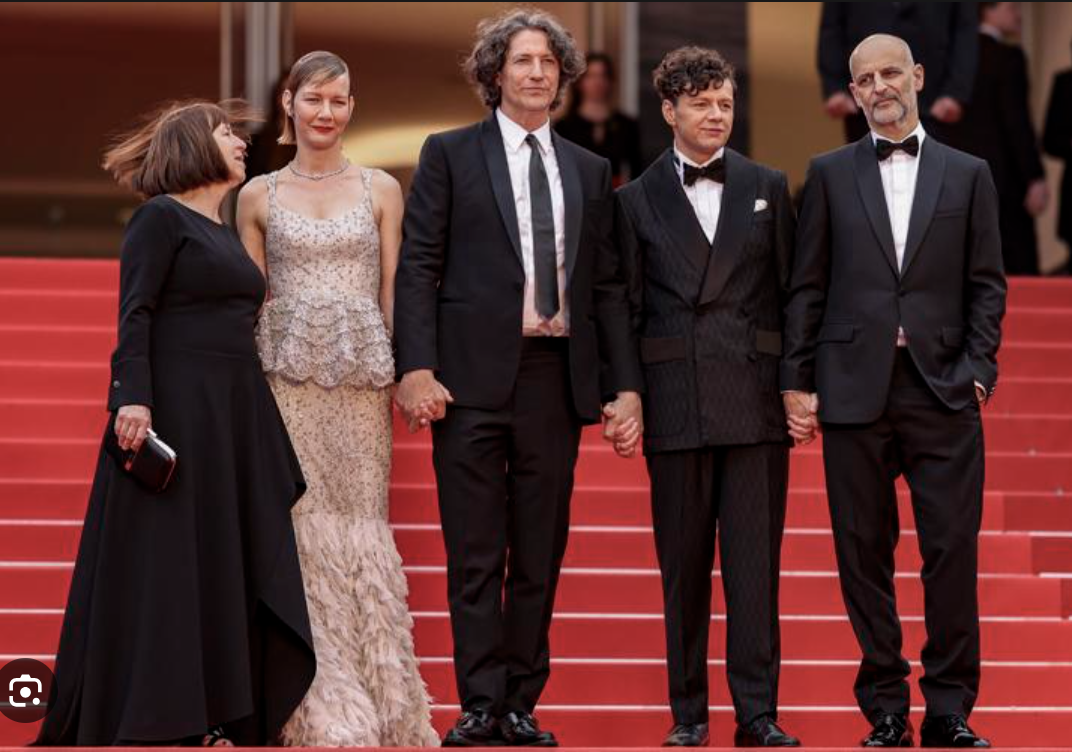Jonathan Glazer‘s The Zone of Interest is an ice-pick art film about evil with a capital E — a riveting, unmistakably horrifying portrait of the home life of Rudolf Höss (Christian Friedel), commandant of the infamous Auschwitz prison camp during World War II, and his wife Hedwig (Toni Erdmann‘s Sandra Hüller).
Rudolf, Hedwig and the kids reside in a large, handsome home just outside the gates of the camp, and mostly we’re just shown the day-to-day of meals, housekeeping, horseback riding, idle chatting with friends, casual infidelities and whatnot.
Glazer’s basic strategy is to allow subtle allusions, hints and insinuations of the Auschwitz horror to seep into this atmosphere of domesticity. Toward the end are two or three scenes of Rudolf meeting with military colleagues about a planned, ramped-up extermination of Hungarian Jews, but Glazer keeps it all curt and officious, saying to us “can you sense it…can you feel it?”
The vibe is ghastly and revolting, of course. The moral delivery feels like…I don’t know, gas filling your lungs or poison spreading through your veins. Little plop-plops of horror like Alka Seltzer tablets.
The film is basically one static tableau after another. The Hoss family taking a swim, the children playing on the grounds, Rudolf professing love for his favorite horse in the stable, Rudolf and Hedwig indulging themselves with lovers on the side, etc.
The Zone of Interest begins with a spooky overture (the composer is Mica Levi) against a black screen, and to be completely honest it was this overture that put the hook in more than anything else.
Because the movie that follows has no story — it is simply about exposing Rudolf and Hedwig’s aloofness and apartness — cruelty, denial, an absence of basic humanity. Here be monsters.
The second best sequence comes at the very end, a series of flash-forward, present-day images of what I presume is the Auschwitz-Birkenau State Museum, and then Glazer dovetailing back to 1942 as Rudolf is seemingly struck by a vision of what the future will bring, and (perhaps) who and what he is.
It all “works” but man, this film is dry as a bone. Like a frigid, long-buried fossil. Dry-ice steam filling the air.
The Cannes mob, of course, is praising it to the heavens because of the toxic moral current and Glazer’s arthouse strategy. Cannes critics can’t be iffy about such a film — they have to jump up and down lest they seem indifferent or unmoved by what Zone is presenting and how it all sinks in.
It’s a film that certainly sticks to your ribs (I can feel it kicking around inside as I write this), but I have to say that I found it too spare, too artified and rigidly schematic to a fault.
As I watched I was asking myself what is this movie saying that wasn’t in Steven Spielberg‘s Schindler’s List or Loring Mandel‘s Conspiracy (’01), a made-for-TV drama that delved into the psychology behind the 1942 Wannsee Conference, which is where “the final solution of the Jewish question” was ratified and officially put into motion.
The answer, as noted, is that The Zone of Interest has been shorn of explicitness while humming with implication. That’s the basic idea, and either this approach knocks you flat or it doesn’t.
I was simultaneously chilled to the bone while muttering to myself “I wish this film had something more because as penetrating as Glazer’s strategy is, it’s like early haute cuisine…big plate, exquisite food but very small portions.”
The film is based upon Martin Amis’s same-titled 2014 novel. It’s about a Nazi officer named Angelus Thomsen who falls into lust for the wife of the Auschwitz camp commandant, named Paul Doll. The only basic element that the book and the film have in common is the Auschwitz setting.
I’m certainly not dismissing Glazer’s film, but if he’d gone with the Amis story he might have been able to kill two birds with a single stone.



